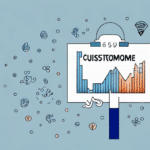The Benefits of Implementing a CRM (Customer Relationship Management) System
In today’s competitive business environment, the success of any company is closely tied to its ability to engage more effectively with its customers. Customer Relationship Management (CRM) systems have become essential tools for organizations aiming to streamline operations and enhance customer experiences. This article delves into the various benefits that companies can gain by implementing a CRM system.
Maximizing Customer Engagement with a CRM System
A CRM system enables organizations to track customer interactions and touchpoints, providing a comprehensive understanding of how customers engage with their brand. According to a 2023 CRM report, businesses that utilize CRM systems see a 29% increase in sales. With this information, businesses can:
- Tailor Communication Strategies: Personalize marketing efforts based on customer behavior.
- Identify Upsell and Cross-sell Opportunities: Analyze purchase history to offer relevant products or services.
- Enhance Customer Satisfaction: Address issues promptly by monitoring satisfaction levels.
Boosting Sales with a CRM System
One of the key advantages of a CRM system is the automation of sales processes, including lead generation, follow-up, predictive analytics, and forecasting. This automation can lead to a 15% improvement in conversion rates. Additionally, a CRM system allows businesses to:
- Streamline the Sales Cycle: Reduce manual tasks and focus on high-value activities.
- Gain Customer Insights: Understand popular products, customer pain points, and areas for improvement.
- Enhance Marketing and Sales Efforts: Create more effective campaigns tailored to customer needs.
Streamlining Business Operations with a CRM System
A CRM system automates and streamlines various internal processes, from customer service and marketing to supply chain management and HR. By optimizing workflows, businesses can save up to 20% in operational costs. Key benefits include:
- Reduced Manual Processes: Free up resources by automating routine tasks.
- Improved Workflow Efficiency: Enhance productivity across departments.
- Data-Driven Product Development: Tailor products and services based on customer preferences.
Enhancing Customer Experience through a CRM System
Customers today expect personalized and positive interactions with brands. A CRM system helps businesses to:
- Track Multi-Channel Interactions: Gain a 360-degree view of customer interactions across email, social media, and phone.
- Identify Behavioral Patterns: Proactively address issues and provide tailored recommendations.
- Deliver Seamless Experiences: Ensure consistency across all communication channels.
According to ShipScience’s customer experience study, personalized experiences can increase customer retention rates by up to 25%.
Integrating Third-party Tools with a CRM System
Integrating CRM systems with other tools such as marketing automation platforms, social media, and web analytics can provide businesses with a comprehensive view of customer data. Benefits include:
- Automated Marketing Tasks: Send targeted emails based on customer behavior.
- Enhanced Data Insights: Track interactions across multiple channels for better decision-making.
- Improved Campaign Effectiveness: Deliver more relevant and timely communications.
Managing Customer Data Effectively with a CRM System
A CRM system centralizes customer data, making it easier to manage, organize, and analyze. This centralization allows businesses to:
- Access Comprehensive Customer Insights: Make informed decisions based on a complete view of customer information.
- Personalize Customer Interactions: Tailor communications to meet individual customer needs and preferences.
- Increase Customer Loyalty: Enhance satisfaction through personalized experiences.
Improving Lead Generation and Conversions with a CRM System
CRM systems help businesses identify, track, and prioritize leads effectively, resulting in higher conversion rates and shorter sales cycles. Benefits include:
- Automated Lead Nurturing: Engage leads consistently through automated follow-ups.
- Personalized Marketing Efforts: Craft messages that resonate with target audiences.
- Optimized Sales Funnel: Focus on the most promising opportunities to drive revenue growth.
Automating Marketing Strategies with a CRM System
CRM systems can automate various marketing tasks, enhancing efficiency and effectiveness. Key advantages include:
- Lead Nurturing and Email Campaigns: Deliver personalized content automatically based on customer behavior.
- Social Media Advertising: Streamline ad campaigns and track performance seamlessly.
- Integrated Sales and Marketing Data: Gain a unified view to optimize strategies and increase ROI.
Customizing Communications with Customers using a CRM System
With a CRM system, businesses can tailor their communication strategies to align with customer preferences and behaviors. This customization leads to improved engagement and better business outcomes. Benefits include:
- Targeted Campaigns: Create messages that resonate with specific customer segments.
- Enhanced Engagement: Increase interaction rates through personalized content.
- Higher Conversion Rates: Drive desired actions such as purchases and referrals through tailored communications.
Gaining Insights and Analytics with a CRM System
A CRM system provides valuable insights and analytics into customer behavior, preferences, and trends. By leveraging this data, businesses can:
- Optimize Strategies: Adjust marketing and sales tactics based on data-driven insights.
- Improve Decision-Making: Use comprehensive analytics to guide business strategies.
- Enhance Performance: Monitor key metrics to drive continuous improvement.
Tracking Customer Interactions and Touchpoints with a CRM System
A CRM system allows businesses to monitor customer interactions across all touchpoints, including email, phone, and social media. This tracking enables businesses to:
- Understand Customer Needs: Gain deeper insights into customer preferences and behaviors.
- Deliver Personalized Experiences: Provide relevant and timely interactions based on tracked data.
- Boost Customer Satisfaction: Address customer needs effectively through informed interactions.
Enhancing Team Collaboration and Communication with a CRM System
A CRM system fosters better team collaboration and communication by centralizing customer information and tracking team activities. Benefits include:
- Centralized Information: Ensure all team members have access to up-to-date customer data.
- Real-time Updates: Facilitate timely feedback and information sharing.
- Improved Decision-Making: Enable collaborative strategies based on comprehensive data.
Securing Customer Data and Information using a CRM System
Security is paramount when managing customer data. A CRM system provides enhanced security measures such as data encryption, access controls, and user authentication to protect customer information from unauthorized access or breaches.
According to ShipScience’s security guidelines, implementing robust security protocols can reduce data breach risks by up to 40%.
Optimizing Workflow Processes using a CRM System
A CRM system automates various workflow processes, including order fulfillment, invoicing, and inventory management. These optimizations lead to:
- Streamlined Operations: Reduce inefficiencies and enhance productivity.
- Minimized Human Errors: Increase accuracy through automation.
- Improved Performance: Support better business outcomes through optimized workflows.
Measuring the ROI of Implementing a CRM System
Measuring the return on investment (ROI) of a CRM system involves tracking key metrics such as lead generation, sales conversion rates, customer retention, and cost savings. These metrics help businesses:
- Evaluate Effectiveness: Assess the impact of the CRM implementation on business performance.
- Identify Improvement Opportunities: Discover areas for enhancing CRM usage and strategies.
- Ensure Continuous Growth: Use ROI data to drive ongoing investments and improvements.
Choosing the Right Type of CRM for Your Business Needs
There are several types of CRM systems available, each with unique features and functionalities. It’s essential to select a CRM system that aligns with your business needs, goals, and objectives to support your organization's growth and success. Consider factors such as:
- Scalability: Ensure the CRM can grow with your business.
- Integration Capabilities: Verify compatibility with existing tools and technologies.
- User-Friendliness: Choose a system that is easy for your team to adopt and use effectively.
Overcoming Common Challenges of Implementing a New CRM System
Implementing a new CRM system can present challenges such as user adoption, data migration, and integration with existing tools. To overcome these challenges, businesses should:
- Provide Comprehensive Training: Ensure all users are adequately trained to use the CRM effectively.
- Plan for Data Migration: Develop a clear strategy for transferring existing data to the new system.
- Ensure Seamless Integration: Test and verify integration with other business tools to avoid disruptions.
Steps for Successful Implementation of a New CRM System
Implementing a new CRM system requires careful planning and execution. Key steps for a successful implementation include:
- Define Objectives: Clearly outline what you aim to achieve with the CRM system.
- Choose the Right CRM: Select a CRM that fits your business needs and goals.
- Plan and Prepare: Develop a detailed implementation plan, including timelines and responsibilities.
- Train Your Team: Provide thorough training to ensure all users are comfortable with the new system.
- Monitor and Optimize: Continuously assess the CRM’s performance and make necessary adjustments.
Future Trends in the Development and Integration of CRM Systems
Looking ahead, CRM systems are expected to incorporate advanced technologies such as artificial intelligence, machine learning, and predictive analytics. These technologies will enhance CRM capabilities, enabling businesses to deliver even more personalized and engaging customer experiences while driving better business outcomes.
Conclusion
Implementing a CRM system offers significant benefits to businesses of all sizes and industries. From improving customer engagement and enhancing team collaboration to optimizing workflow processes and driving revenue growth, a CRM system is an essential tool for any organization aiming to enhance its performance and achieve greater success. By selecting the right CRM system, addressing implementation challenges, and following a structured deployment process, businesses can effectively leverage their CRM systems to transform customer interactions and drive sustained growth.






















